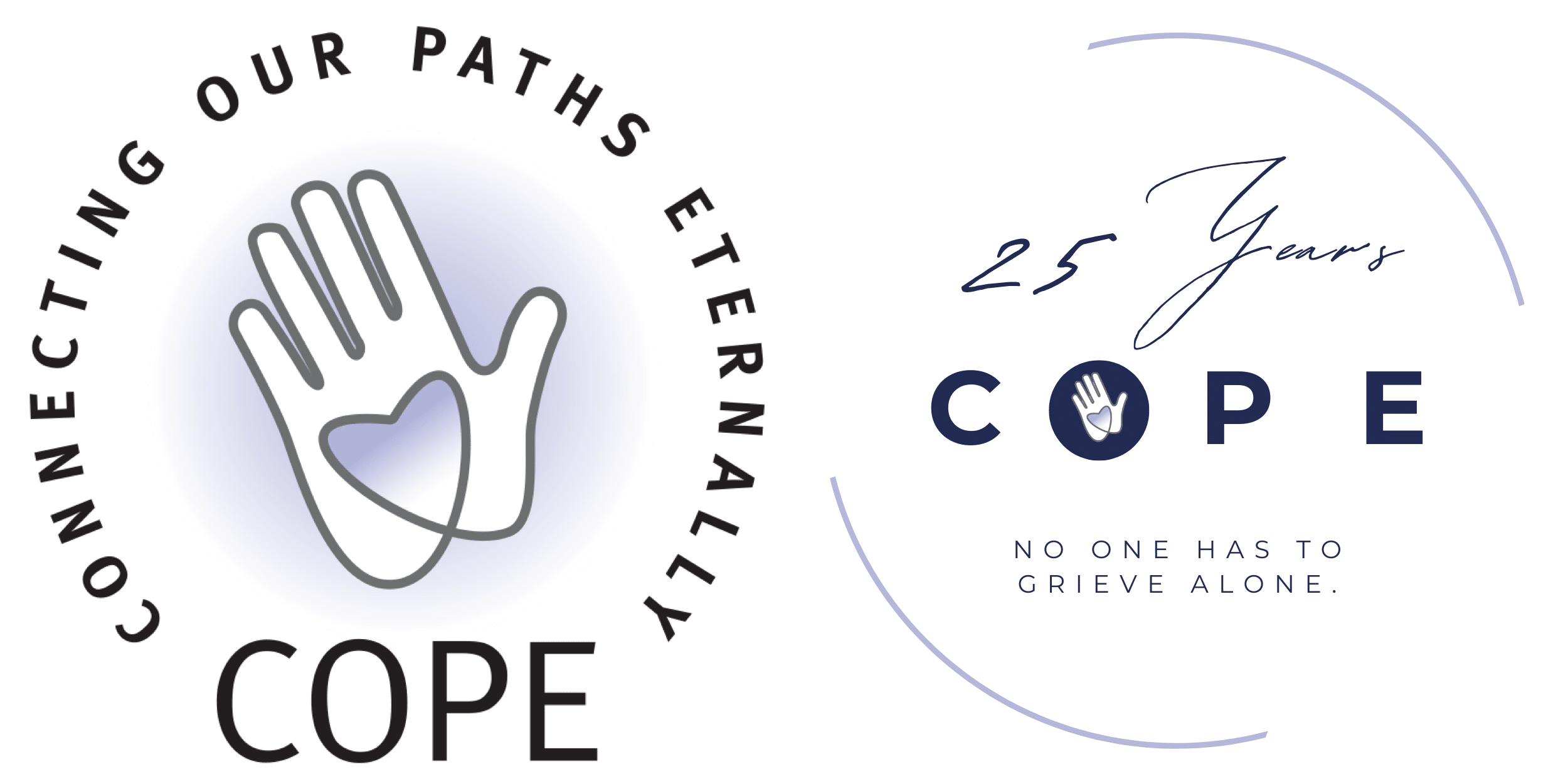Prolonged Grief Disorder
The newest version of the Diagnostic and Statistical Manual of Mental Disorders (DSM-V TR) includes a new diagnosis known as Prolonged Grief Disorder. Along with many in the grief community, this new addition has been an important topic of conversation for months among our staff and leadership, which includes both bereaved individuals and clinicians (and many who are both) and even among our COPE families.
For many the topic is sensitive or controversial given the fear of pathologizing grieving individuals, telling people there is something wrong with them or the way they are grieving, or setting strict stages or timeframes for grief. For others it is validating to find new language and even labels to show those who may not understand their grief experience that grief is a very real challenge with enormous impact on one’s life and that in many cases interventions or the best forms of coping are unclear.
It is important to those of us at COPE to continue to normalize the grief experience, educate our community on the many facets of grief and bereavement, and provide and increase access to services to those who are grieving whether through our own programs or referrals to other organizations. We hope to support individuals and validate their experiences through connecting them with other bereaved parents, siblings, and children. We also hope to reduce stigma around mental health diagnoses, mental health services, and the fear of seeking out help when it is needed. The importance of finding support is even more imperative given research that shows there are some elevated physical health risks for those who are grieving. The compounded risk grief has for an individual’s physical and mental well being cannot be ignored. Our goal is for our community to know they are not alone and there is support available.
As many in our community can attest, there is no “getting over” grief. Our grief will always be with us, but we learn to grow around our grief and to cope with the feelings that in the beginning (or even for a long time after) might have seemed impossible. We can cope with our grief by leaning on our social supports, engaging with our grief through various forms of therapy and self-care, and through maintaining a continuing bond with our loved one through memories or the ways we have chosen to honor them.
For others though, grief may become so overwhelming for so long that it significantly impairs daily functioning and finding ways to cope with it becomes impossible. In these cases, extra support and help is needed. This might happen for many reasons – circumstances around the death, lack of other supports, other life stressors, or pre-existing personal conditions or risk factors.
The need for additional help should not be stigmatized or conflated with other mental health conditions. Though it may have similarities to depressive episodes or traumatic responses, grief and its treatment should be considered uniquely different. The inclusion of Prolonged Grief Disorder in the DSM-V TR is an important step in distinguishing grief from other mental health disorders and validating the complexity of the grief experience. It also opens doors by allowing more clinicians to provide insurance-covered mental health treatment for those individuals who cannot afford to pay for these services on their own, increasing access to these resources.
Some of COPE’s clinical leaders have received training at Columbia University’s Center for Prolonged Grief (previously Center for Complicated Grief) or with its founding director, Dr. Katherine Shear, and have found the approach to treating Prolonged Grief to be a compassionate and behavioral approach, appreciating that the goal is not to cure someone of their grief, but rather to help them find it more manageable.
Their website provides definitions of prolonged grief and its diagnostic criteria and also defines other forms of grief. We encourage you to explore these resources if you want to learn more about Prolonged Grief or think this form of grief treatment might be helpful for you.
https://prolongedgrief.columbia.edu/professionals/complicated-grief-professionals/overview/
We also invite you to reach out to us for additional resources, referrals, or support.
Lastly, we want to share some recent media on Prolonged Grief Disorder to further the conversation.
How Long Should It Take to Grieve? Psychiatry Has Come Up With an Answer.
https://www.nytimes.com/2022/03/18/health/prolonged-grief-disorder.html?smid=em-share
The Loss of a Child Takes a Physical Toll on the Heart
Grief, like death, is still taboo for many of us. But is that starting to change?
As COVID Deaths Rise, Lingering Grief Gets a New Name

